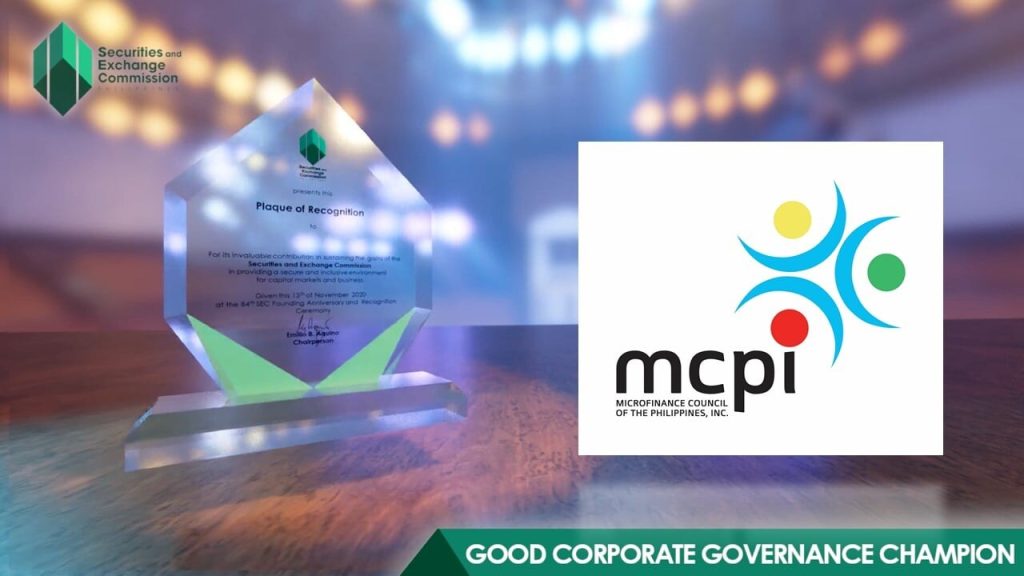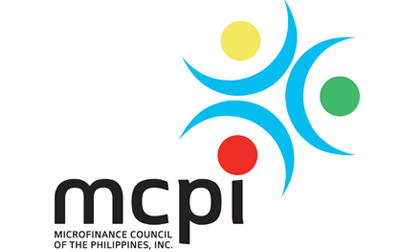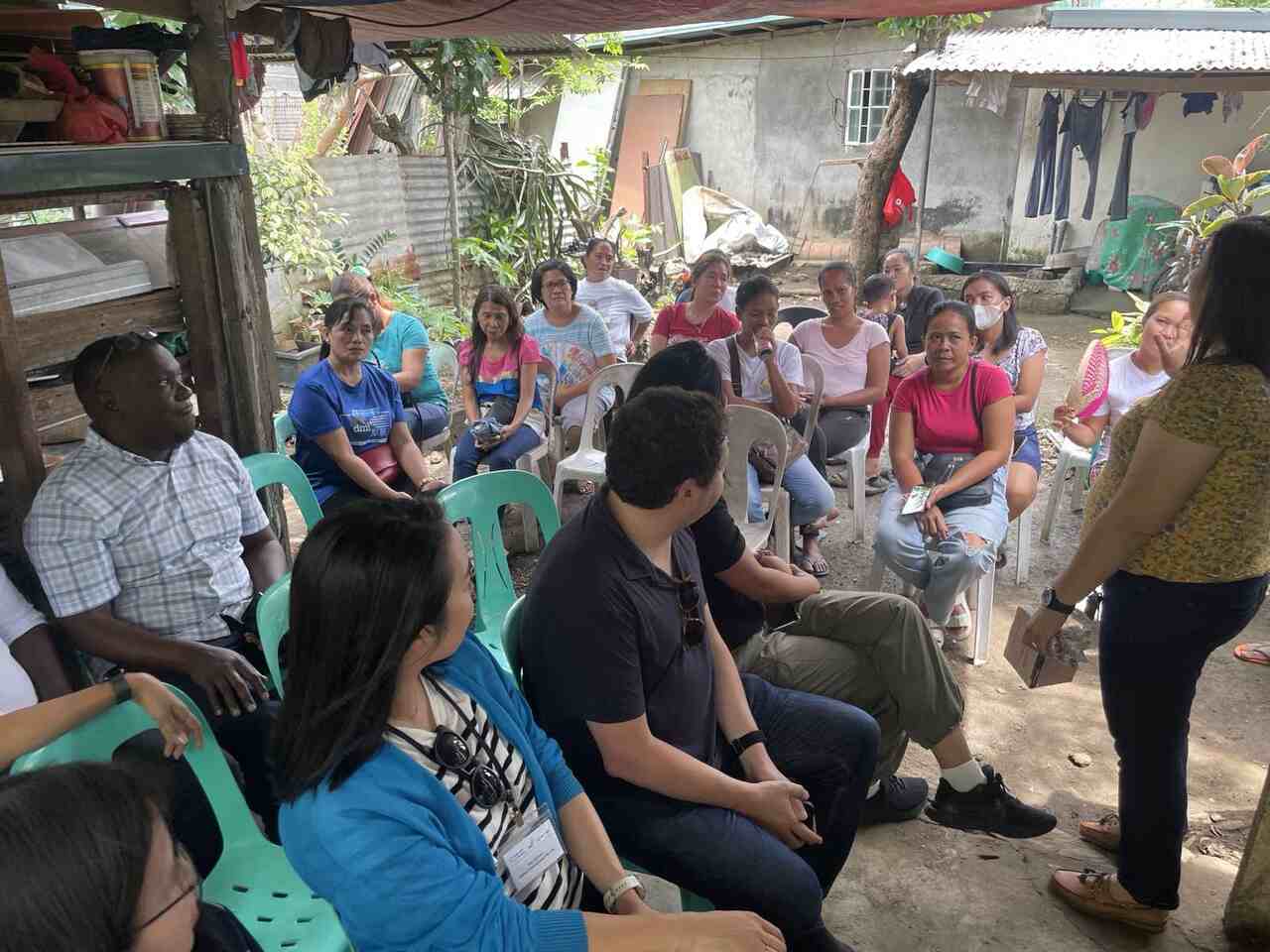The Microfinance Council of the Philippines, Inc. (MCPI) is a non‐stock, non‐profit national network of microfinance practitioners and allied institutions in the Philippines. It was formed by Filipino microfinance NGOs in the late 1990s to coordinate industry standards and share best practices. MCPI’s members include NGOs, banks, cooperatives and finance companies providing loans and other financial services to low‐income households. Through advocacy and collaboration, MCPI seeks to strengthen client‐responsive and inclusive financial services for poverty reduction, making it an influential industry voice. Although MCPI is not a government agency or GOCC, it partners closely with regulators (like the SEC and Bangko Sentral) and government‐owned and controlled corporations (GOCCs) – such as the People’s Credit and Finance Corporation (PCFC) – to expand access to financial assistance for the poor.
MCPI’s goals reflect its importance as a microfinance industry group. It was founded to raise ethical standards, coordinate support services, and give its members a stronger collective voice. Its rationale is that a unified network can advocate more effectively for policies and programs (such as government subsidies or credit windows) that benefit small borrowers. By pooling resources and sharing knowledge, MCPI helps member institutions innovate products and improve governance, aligning with its vision of a “world-class sustainable network” solving poverty. In short, MCPI’s existence is rooted in the belief that organized coordination – rather than fragmented efforts – will enable broader, more sustainable financial assistance to vulnerable Filipinos.
History

MCPI traces its roots to a USAID “Developing Standards for Microfinance” project (1996–1999). The MFIs in that project chose to form a network to continue their collaboration. In June 1999 the Microfinance Council of the Philippines, Inc. was legally registered as a non‐stock corporation. Over time the network grew significantly. By late 2021, MCPI had 66 members (55 regular and 11 support institutions), including 33 microfinance NGOs, 12 banks, 7 cooperatives, 1 finance company and 2 regional associations. Together, MCPI’s members account for roughly 80–90% of the active microfinance outreach in the Philippines, illustrating the Council’s dominant coverage of the microfinance market. (Its members’ joint loan portfolios serve well over a million small borrowers across the country.) This growth reflects how MCPI has expanded from an NGO coalition to a national industry association shaping policy and practice in Philippine microfinance.
MCPI Logo

MCPI’s logo has symbolic meaning connected to its mission. The original logo (used until 2010) featured five stylized fish above the acronym “MCPI,” symbolizing MCPI’s mission to give Filipinos the tools to overcome poverty – echoing the proverb “teach a man to fish”.
In 2010, the Board approved a logo redesign to modernize the image. The new logo features four colorful dots (red, yellow, green, and blue) surrounded by curved blue shapes that form a dynamic, circular design. The dots represent the different groups involved in microfinance, like communities, partners, and institutions. The blue curves symbolize movement, unity, and cooperation. The bright colors reflect hope, growth, and commitment to uplifting lives through microfinance. Overall, the logo stands for MCPI’s mission to bring people together and promote financial inclusion in the Philippines.
Mission
To quote, the MCPI’s official mission statement reads:
- Advocate poverty reduction and social protection in the Philippines by promoting ethical and inclusive financial and non-financial services.
- Advance the capacity of members to serve poor households in a sustainable, innovative, and client-responsive manner.
- Achieve the highest global standards of excellence in governance, stewardship, and service towards members and their staff, clients, and communities that they serve.
Vision
MCPI’s vision, on the other hand, reads as follows:
“A world-class sustainable network of microfinance institutions and support organizations advocating inclusive, innovative, and client-responsive solutions to poverty in the Philippines”.
Core Values
MCPI’s activities reflect a set of core values derived from its mission and the ethics of its members. These include:
- Ethical Service
- Inclusivity
- Client-Responsiveness
- Innovation and Sustainability
- Collaboration
- Excellence in Governance
These values are not formally listed on MCPI’s website, but they are implied by its mission text and programs. MCPI’s Code of Ethics (for example) also emphasizes honesty, mutual respect and professional standards, reflecting the network’s commitment to integrity and collaboration.
Quality Policy
MCPI’s quality policy is embedded in its commitment to high standards and continuous improvement. In practice, MCPI adopts a self-improvement stance: setting measurable standards for member performance (through codes and peer reviews) and constantly refining its services. For example, the mission pledges “the highest global standards of excellence in governance, stewardship, and service”. This implies that MCPI seeks to operate with accountability and quality management – e.g. regular reporting, evaluations of projects, and adherence to international microfinance standards. MCPI’s emphasis on benchmarking and reporting (see its knowledge-management work below) also reflects a quality‐focused mindset, ensuring that programs stay relevant and effective.
Mandate
As a non‑governmental network, MCPI does not have a legal “mandate” in the way a public agency does. Its mandate comes from its members and by consensus: to promote microfinance standards and support industry development. However, MCPI operates in a legal context shaped by government laws. For example, Republic Act No. 10693 (the Microfinance NGOs Act) created the Microfinance NGO Regulatory Council (MNRC) – a body in which MCPI is a key stakeholder – to accredit MF NGOs for government programs. In this sense, MCPI is indirectly involved in fulfilling national microfinance mandates. Within the organization, MCPI’s mandate (per its by-laws) is to serve its members by providing advocacy, training, and research for poverty reduction.
Powers and Functions
MCPI’s powers and functions are essentially those of an industry association: it can recommend policies, set voluntary standards for members, and represent members’ interests, but it cannot enforce laws. In practice, MCPI:
- Advocates for pro-poor finance policies (e.g. lobbying for supportive legislation or regulations).
- Works with regulators: It collaborates closely with the SEC’s Microfinance NGO Regulatory Council and the Bangko Sentral ng Pilipinas on rules and accreditation for MFIs.
- Sets ethical and performance standards: For example, MCPI has a Code of Ethics for MFIs, and it promotes social performance management and client protection standards among members.
- Provides industry services: Organizes capacity-building workshops, publishes industry reports, and facilitates data-sharing to improve members’ services.
- Awards and recognition: MCPI co-implements awards (like the Citi Microentrepreneurship Awards) to incentivize innovation and good governance among MFIs.
- Liaises with stakeholders: It links MFIs with donors, technical partners, and government to channel financial and technical assistance.
Organizational Structure
MCPI is governed by a Board of Trustees elected from its regular members. The Board (typically up to nine trustees) includes a Chairperson, Vice Chair, Corporate Secretary and other officers, all representing leading MFIs (NGOs, cooperatives, banks, etc.). For instance, the current Chair is from Negros Women for Tomorrow Foundation, and the Secretary is from CARD, Inc.. The Board sets strategic direction and policies, approves the annual plan and budget, and oversees MCPI’s compliance and ethics.
Day-to-day operations are handled by a small Secretariat staff headed by an Executive Director. The Secretariat manages projects, member services, communications, and coordination among committees (e.g. technical working groups on credit, social performance, etc.). In addition, MCPI may form sub-committees or working groups (on topics like digital finance or disaster resilience) that draw staff from member organizations.
Benefits of Membership
Being an MCPI member offers several advantages for a microfinance institution or related organization:
- Networking & Recognition: Gain industry recognition as part of the leading microfinance network, and connect with peers through conferences, seminars and working groups. Members often get priority in experience-sharing events.
- Technical Support: Access technical assistance and consultancy in areas like market research, new product development, social performance management, and client protection practices.
- Training & Scholarships: Receive scholarships or special rates for MCPI training workshops, conferences and capacity-building activities.
- Information Resources: Obtain MCPI’s research outputs, industry reports, case studies, and benchmark data – valuable tools for decision-making and strategic planning.
- Global Linkages: Tap into MCPI’s connections with international networks, donors and technical partners for funding and knowledge exchange.
- Governance Participation: Nominate up to nine board representatives to participate in MCPI’s governance, ensuring that members help steer the Council’s agenda.
Overall, membership in MCPI helps an organization to learn, grow and have a stronger voice in Philippine microfinance.
Coverage
MCPI’s coverage is extensive within the Philippine microfinance sector. Its members include most of the country’s major microfinance lenders: international NGOs, local development NGOs, rural banks, thrift banks, cooperatives, and finance companies. As noted, by 2021 MCPI had 66 member institutions (55 regular, 11 associate/support). These members serve communities nationwide – from urban poor neighborhoods to distant rural barangays. Collectively, MCPI members reach an estimated 80–90% of all active microfinance clients in the Philippines. In other words, nearly the entire microfinance market – in terms of loans outstanding and borrowers – is represented within MCPI.
MCPI’s reach is not only national but also multi-sectoral: it includes mainstream private banks (e.g. development banks doing microfinance), specialized MFIs (like NGO microfinance institutions), and multi-stakeholder projects. This broad coverage means MCPI’s policy positions carry weight with regulators and legislators, since it speaks for the vast majority of the industry. In practice, MCPI’s members provide financial assistance (microloans, microinsurance, savings, etc.) to hundreds of thousands of low-income Filipinos. By coordinating them under one roof, MCPI helps ensure that their collective efforts align with national goals for financial inclusion and poverty alleviation.
Programs and Services
Some of the programs and services offered by MCPI to its regular and associate members include:
Advocacy
MCPI acts as the voice of the microfinance industry. It advocates for an enabling environment that helps MFIs and their clients thrive. MCPI also leads or co-leads sector initiatives: it has championed governance standards, financial and social performance norms, and client protection guidelines.
MCPI’s current advocacy agenda focuses on post-pandemic recovery and regulatory issues. It has lobbied for programs to help MFIs and microenterprises recover from COVID-19 disruptions. It works to streamline MNRC accreditation for non-bank MFIs and ensure that all MFIs comply with revised microfinance rules. By representing MFIs’ collective concerns in policy forums, MCPI helps secure support and minimize regulatory burdens on the sector.
Capacity Building
MCPI provides training and technical support to strengthen member institutions. Its capacity-building program is designed to help members develop innovative, client-focused, financially inclusive and sustainable products and services. In the past, MCPI offered assistance in areas such as:
- market research,
- product development,
- governance,
- housing microfinance, and
- disaster risk management.
As members’ needs have evolved, MCPI’s agenda has shifted to:
- digital transformation (e.g. e-loan systems, fintech),
- social performance management (SPM) and client protection training,
- green inclusive finance (environmental sustainability), and
- business continuity planning.
MCPI also organizes workshops, learning exchanges, and study tours, leveraging expertise from international partners (e.g. AFI, IFC) and local resource persons to build practical skills. Through capacity building, MCPI helps ensure that even smaller MFIs can meet global industry standards and better serve poor clients.
Knowledge Management
MCPI’s knowledge management efforts make microfinance information widely available. The Council collects and publishes data on industry performance and trends. Its programs are geared towards “increasing the availability of industry information, microfinance best practices, and innovations”. Practically, MCPI circulates benchmark reports (on outreach, portfolio quality, etc.), publishes occasional industry studies, and defines a research agenda for the sector. It disseminates case studies on successful microfinance models and papers on lessons learned (e.g. on serving migrants or on climate-resilient finance). Its knowledge management function turns MCPI into the “information clearinghouse” for Philippine microfinance.
Video: Microfinance and its Role in Empowering Women to Rebuild Lives After Crisis
The Microfinance Council of the Philippines (MCPI) is an industry association uniting all the nation’s microfinance institutions. Born in 1999 from an NGO coalition and has become a “world-class sustainable network” supporting financial inclusion, MCPI offers inclusive, client-responsive solutions to poverty through advocacy, training, and knowledge sharing. With about 80–90% of the microfinance sector under its umbrella, MCPI wields significant influence: it works with government regulators and GOCCs (like PCFC) to shape policies, and it helps its members adopt high standards. Through conferences, awards, and policy dialogues, MCPI keeps the sector connected and focused on poverty reduction while delivering broader, higher-quality financial assistance across the country. To learn more about microfinance and its role in the society, please check out this video from ADB:
Contact Information
For more information about MCPI, contact details are:
- Office: Unit 1909, Jollibee Plaza Condominium, F. Ortigas Jr. Road, Ortigas Center, 1605 Pasig City, Philippines.
- Phone: +63 2 8631 5920 or +63 2 8631 6184; Mobile +63 916 424 3455.
- Website: www.microfinancecouncil.org
- Email: secretariat@microfinancecouncil.org
